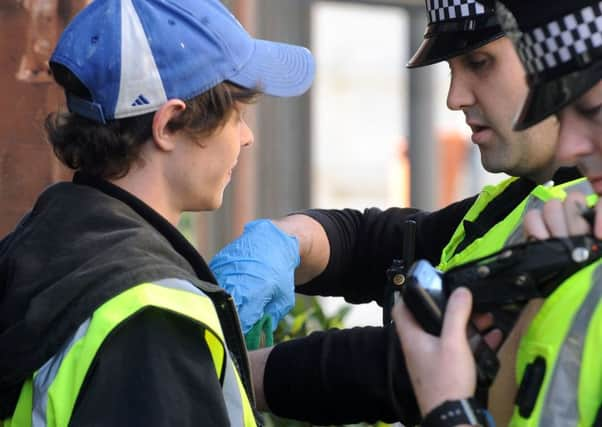Chief constable says police must be able to search youngsters for alcohol


Scotland’s most senior police officer has said his force must be allowed to continue searching young people for alcohol once a new code of practice is introduced.
The Scottish Government has been consulting on whether Police Scotland needs new powers after the controversial tactic of non-statutory stop and search is scrapped.
Advertisement
Hide AdAdvertisement
Hide AdChief Constable Phil Gormley said there would be occasions when officers would need to search for alcohol to protect children and the wider public.
He said: “It’s a really sensitive issue and I understand the sensitivities. I think with proper training, respect and a professional approach, on occasion we would want to be able to [search children for alcohol]. There will be occasions in order to protect children when we will need to do it.
“With the code of practice and the end of consensual stop and search we must maintain public trust and confidence.”
Mr Gormley, who took up his post eight months ago, said misuse of search powers would have an impact on how the public sees his force.
He said: “With the abuse of those sort of powers, and I’ve seen it elsewhere, you see public confidence drift away very quickly.
“But public confidence is also vested in a police service doing the job it needs to do. I can see instances where we would want to be able [to search]. It won’t be very often and we need to do it very thoughtfully, but in order to protect children and young people I think on occasion we will need to do that.”
In a consultation response published earlier this month, Police Scotland called for a period of “evidence gathering” of at least six months once the new code of practice is introduced.
But it said the removal of non-statutory stop and search would result in a “significant change” to policing which may yet require to be addressed through legislation.
Advertisement
Hide AdAdvertisement
Hide AdTam Baillie, Scotland’s Children and Young People’s Commissioner, said it was neither “necessary or desirable” to create a new statutory search power, with existing powers of seizure “sufficient”.
At present, officers can confiscate alcohol from under-18s but have no specific power to search for it.
It was announced last year that the practice of non-statutory stop and search would end.
It followed the publication of a report by an expert group led by John Scott QC which found that ending the searches would not prevent officers carrying out their duties effectively.